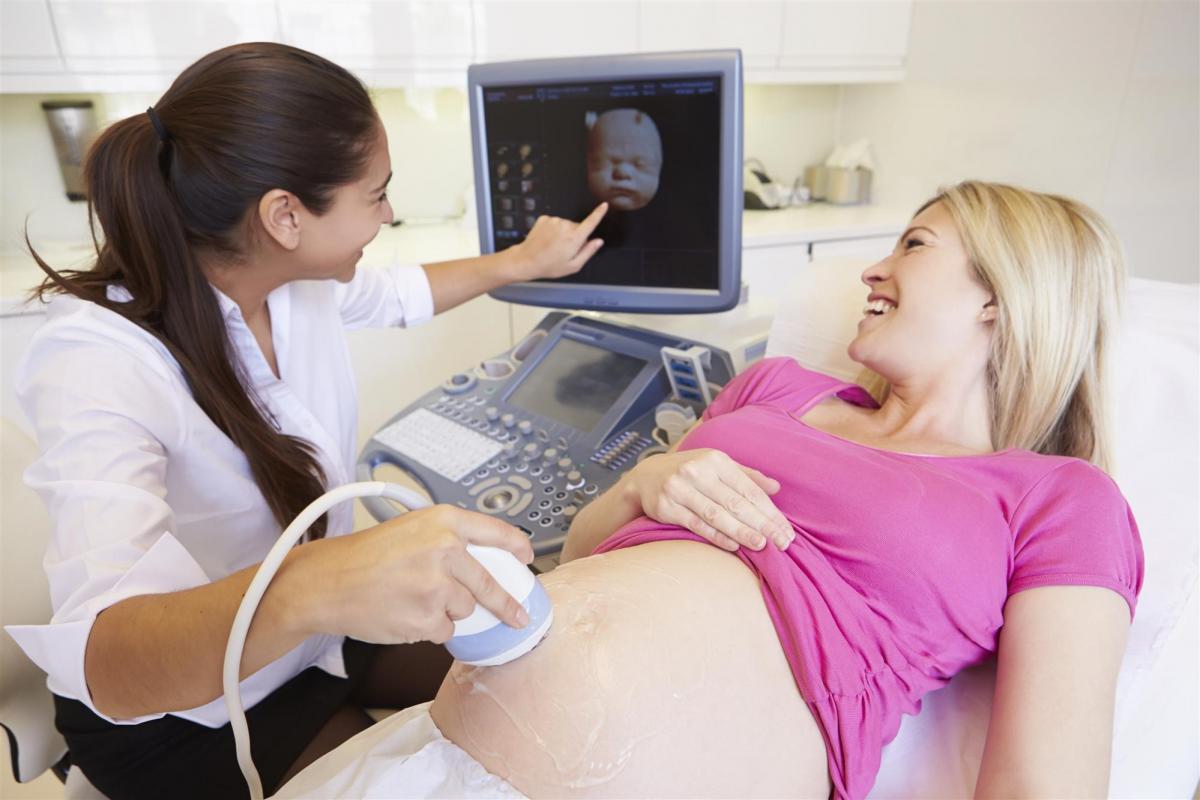
10 Steps to a Healthy Pregnancy
The joy of learning that you’re pregnant can often be accompanied by feelings of worry. Often, we find ourselves taking inventory of every glass of wine you had at that dinner party last weekend, or what supplements you may be taking. And what about that high-intensity spin class—could it hurt the new life growing inside of you?
These worries are perfectly normal—as a mom-to-be, you want the best for your baby. Whether you’ve recently become pregnant or you’re still trying, you likely have plenty of questions about self-care during pregnancy. You’re in luck—the expert OBGYNs at Crystal Run Healthcare have compiled 10 tips on steps you can take to have a healthy pregnancy, and healthy baby.
1: Plan Ahead
There are things you can and should do, if possible, before you become pregnant to ensure a healthy pregnancy, including scheduling a preconception check-up, during which your doctor will review any current health issues you have (such as diabetes or high blood pressure), review any medications and  supplements you’re taking to determine their safety during pregnancy, test you for sexually transmitted infections (STIs), ensure you’re up to date on immunizations, and possibly perform a genetic carrier screening.
supplements you’re taking to determine their safety during pregnancy, test you for sexually transmitted infections (STIs), ensure you’re up to date on immunizations, and possibly perform a genetic carrier screening.
Your provider may recommend you begin taking a folic acid supplement or a multivitamin with at least 400 mcg of folic acid prior to becoming pregnant. Other must-dos: Cut back on alcohol, quit smoking, and limit consumption of fish that contain high levels of mercury (e.g., tuna, shark, and swordfish).
2: Find the Right OBGYN
It’s critical not just to find a healthcare provider—but the right provider. Your OBGYN should provide essential medical guidance throughout your pregnancy but also respect your wishes as a mom-to-be. Choose an OBGYN who has excellent credentials, a history of success, and an attentive bedside manner.
The expert obstetricians at Crystal Run Healthcare provide a complete continuum of care for moms-to-be and women trying to become pregnant, from preconception counseling to prenatal classes to high-risk pregnancy care.
3: Keep Weight Gain in Check
The amount of weight you should gain during pregnancy varies and depends on several factors, including your pre-pregnancy weight and health status. A study by the Centers for Disease Control (CDC) found that nearly half of pregnant women in the U.S. gain too much weight during pregnancy.1 Gaining too much weight puts you at an increased risk of developing gestational diabetes and experiencing labor complications, including needing a last-minute cesarean section.
As a general guideline, healthy women should gain somewhere in the range of 25-35 pounds; overweight women should gain 10-20 pounds; underweight women (or those with multiples) should gain 35-45 pounds. Your health care provider will help you understand how much weight you should gain during your pregnancy.
4: Eat Well
“Eating for two” does not mean you should eat twice as much food. In fact, pregnant women only need an additional 300 calories per day.2 The quality of the calories you consume matters most. Choose nutrient-dense foods in their whole form, and avoid sweets and processed food. Your baby gets the  nutrition it needs from your body, and if you’re not consuming enough nutrient-dense foods, your health could suffer.
nutrition it needs from your body, and if you’re not consuming enough nutrient-dense foods, your health could suffer.
Eat a well-balanced diet that includes plenty of vegetables, fruits, whole grains, lean proteins, dairy, and healthy fats and oils. Your obstetrician will work with you to develop an optimal diet plan for you and baby.
Tip: Fish is an excellent source of omega-3 fatty acids, Vitamin D, and protein, but many fish contain high levels of mercury, especially large fish like tuna and shark. Aim for 8-12 ounces a week of fish low in methylmercury. Good choices include anchovies, sardines, salmon (wild-caught), and trout.
5: Get Stress Under Control
Research is uncovering how maternal stress affects fetal development. Studies have shown that stress increases the risk of pre-term labor, low birth weight, and a host of other problems.3 Fetuses respond to stimuli in the womb, including mom’s stress hormones. Maternal stress can increase the likelihood of intrauterine infection, and it may even affect a baby’s temperament and neurobehavioral development, to say nothing of the effects of stress on moms-to-be.3
Many women are reluctant to talk about the stress and daily pressures they face, believing they should be able to “do it all.” It’s more important than ever to get stress levels under control during pregnancy—talk with your doctor about methods to minimize stress.
6: Minimize Chemical Exposure
The world is awash in chemicals and toxins—many of which are hiding on and in food, and in cosmetics and household cleaners. Choose natural cosmetics and household cleaners (or, make your own household cleaners from everyday ingredients like baking soda, vinegar, and lemon juice), and avoid exposure to solvents, paints, and lead dust (be especially cautious if you’re renovating a home while pregnant). Buy organic foods as often as possible to minimize exposure to harmful pesticides and growth hormones.
Tip: Avoid bisphenol-A- (BPA-) containing products, including plastics and cash register receipts; BPA mimics estrogen, which may disrupt hormone levels and development in fetuses and babies,4 and could cause developmental problems in your child later in life.5
Tip #2: Avoid cleaning your cat’s litter box throughout your pregnancy, and don’t eat raw or undercooked meat. Both could expose you to the parasite that causes toxoplasmosis, a disease that can cause birth defects.
7: Keep Moving
The days of women being confined to bed throughout pregnancy are long gone, and for good reason—pregnant women need cardiovascular exercise just as much as women who aren’t pregnant. Unless you have a high-risk pregnancy and have been ordered by your doctor to avoid physical activity, many providers recommend you exercise at least 30 minutes a day, 6 or 7 days a week.
Brisk walking, stationary cycling, swimming, stretching, and using an elliptical trainer are among some of the safe exercises you can do during pregnancy. Exercise keeps your muscles, heart, and lungs strong, which will help you during delivery. Talk to your provider prior to beginning any new exercise plan.
8: Get a Dental Check-Up
Increased hormone levels (progesterone and estrogen) can change the way your immune system reacts to the bacteria that hide in plaque build-up and tartar, making you more susceptible to gum disease. If you notice swollen, bleeding, or tender gums (gingivitis), see your dentist for a cleaning. Gum  disease may even be linked to other health problems, including stroke and heart disease.6
disease may even be linked to other health problems, including stroke and heart disease.6
9: Take Extra Precautions
Injuries from motor vehicle accidents are a leading cause of injury and death for pregnant women in the U.S., according to the CDC.7 Motor vehicle accidents are also a leading cause of traumatic fetal deaths. Wearing a seat belt—without exception—while driving or riding in a car is essential to protect you and baby.
Your seat belt should be worn with the shoulder strap between the breasts and the lap belt across your pelvis, below the belly, to distribute the force of impact and reduce the risk of injury. Sadly, domestic violence is another leading cause of injury and death among pregnant women.8 Women who are being abused should call the National Domestic Violence Hotline for help at 800-799-SAFE, or visit thehotline.org.
10: Know the Warning Signs of a Problem
1 in every 10 infants in the U.S. is born prematurely.9 Babies born preterm are at increased risk of developmental delays, hearing impairment, vision problems, feeding difficulties, and other problems. Be aware of the warning signs, some of which can be subtle. If you experience dizziness, shortness of breath, rapid heartbeat, nausea and vomiting, difficulty walking, fainting, blurry vision, or decreased fetal activity for more than 24 hours, see your obstetrician right away or visit the nearest emergency room.
Crystal Run Healthcare: Your Trusted Obstetrics & Gynecology Care Provider
The caring and highly skilled obstetrician-gynecologists at Crystal Run Healthcare offer pre-pregnancy, prenatal, and obstetrical care in a compassionate, patient-centered environment. We know that each pregnancy is unique, and we take the needs, concerns, and wishes of our patients very seriously. Our physicians are committed to delivering exceptional care to each and every patient.
Please contact us at to schedule an appointment with one of the esteemed providers below, or use our provider finder tool.

Inna Cohn DO
SPECIALITIES: Obstetrics & Gynecology
Manan Shah MD, FACOG
SPECIALITIES: Obstetrics & Gynecology
Board Certified: Obstetrics & Gynecology
Christian F. Roman-Rodriguez MD, FACOG
SPECIALITIES: Obstetrics & Gynecology
Board Certified: Obstetrics and Gynecology
Crystal Run Healthcare offers obstetrics & gynecology services in Middletown, NY, Goshen, NY, Monroe, NY, Newburgh, NY, Warwick, NY, Rock Hill, NY, West Nyack, NY and communities across southeast New York.
Sources
- https://www.cdc.gov/mmwr/preview/mmwrhtml/mm6443a3.htm?s_cid=mm6443a3_w
- https://medlineplus.gov/ency/patientinstructions/000584.htm
- https://www.webmd.com/children/bpa
- https://www.ncbi.nlm.nih.gov/pubmed/26343751
- https://www.webmd.com/oral-health/gingivitis-periodontal-disease#1
- https://www.cdc.gov/prams/pdf/snapshot-report/motorvehicleinjuries.pdf
- https://www.ncbi.nlm.nih.gov/pmc/articles/PMC3428236/
- https://www.cdc.gov/reproductivehealth/maternalinfanthealth/pretermbirth.htm

 Optum Radiology at Crystal Run Healthcare
Optum Radiology at Crystal Run Healthcare Same and next-day pediatric appointments
Same and next-day pediatric appointments